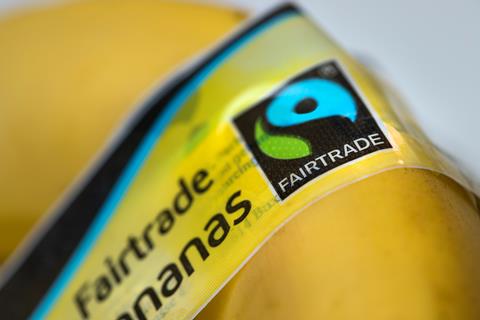Review of 122 studies finds that Fairtrade is contributing to several areas of sustainable and ethical trade
Fairtrade is making meaningful and significant contributions in key sustainability areas including economic security, climate resilience, and opportunities for women, according to a new Fairtrade analysis of studies.

The study found that Fairtrade financial interventions such as the Fairtrade Minimum Price and Fairtrade Premium, coupled with strong standards and hands-on support for producers, are key to helping the organisation meet its goal of moving towards fairer and more sustainable global trade.
The ’Evidence Map 2021 to 2024: Evidencing the Theory of Change’ reviewed 122 different studies, along with Fairtrade’s own programme and monitoring data and focus groups with staff, to connect the activities that Fairtrade carries out to results evidenced in research and other data.
“This ‘study of studies’ is a large undertaking that helps us to understand our impact across a range of areas from environmental effects to livelihoods to inclusion to trust and satisfaction,” said Fairtrade International’s director of global impact Dr Arisbe Mendoza.
“It’s important to carry out this kind of work so that we have an evidence-based guide to lead us forward, and also make it easy for anyone to see the difference that Fairtrade makes and to have confidence in choosing Fairtrade.”
The study, carried out by external researchers David Jodrell and Willemijn de Bruin, highlighted Fairtrade’s impact in a number of core areas.
These included economic benefits, climate resilience, inclusiveness and representation, better working conditions, trust and satisfaction, and sustainable, resilient, and fairer supply chains.
The study also points to areas where Fairtrade’s influence is less measurable, such as progress toward living wages for employees of large-scale farms, due to external factors limiting the impact of Fairtrade’s wage-related standards.
While Fairtrade has implemented new measures in the past few years, such as setting base wages and developing voluntary living wage reference prices for bananas, it said these have not yet been studied enough and the results are not yet clear.
Another area is meaningful progress toward inclusion for women.
Fairtrade improves women’s opportunities and skills and increases representation within producer organisations, yet some studies still find that women’s participation and ability to influence decisions – for instance within their cooperative – can be limited by broader social norms depending on the context.
Moreover, the study found that there is not enough existing research about Fairtrade in some areas to draw valid conclusions about influence, including when it comes to supporting producers to have their own data and to use it effectively, freedom of association, and achieving public policies that support broader societal change.
“Fairtrade is one of the most researched ethical certifications out there, which is good for us because it means academics and students are putting their skills to work to measure if we’re having the impact we want, and where the gaps are,” said Mendoza.
“We update our research agenda annually and really value the collaborations with researchers and other like-minded organisations – as well as our own monitoring and evaluation staff across our global network – so we can all know more and do better.”
Fairtrade said that the information from the study, conducted every four years, helps it to reassess its Theory of Change, which spells out how its interventions create change in the short and medium term, to create long-lasting impact.
The study’s findings will also contribute to Fairtrade’s future research agenda, programme development, and strategic planning to refine its next global strategy.



